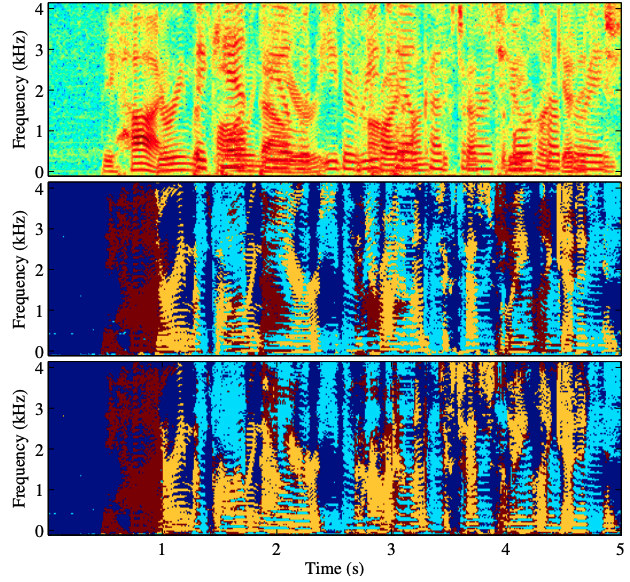Auxiliary Interference Speaker Loss for Target-Speaker Speech Recognition
In this paper, we propose a novel auxiliary loss function for target-speaker automatic speech recognition (ASR). Our method automatically extracts and transcribes target speaker's utterances from a monaural mixture of multiple speakers speech given a short sample of the target speaker. The proposed auxiliary loss function attempts to additionally maximize interference speaker ASR accuracy during training. This will regularize the network to achieve a better representation for speaker separation, thus achieving better accuracy on the target-speaker ASR. We evaluated our proposed method using two-speaker-mixed speech in various signal-to-interference-ratio conditions. We first built a strong target-speaker ASR baseline based on the state-of-the-art lattice-free maximum mutual information. This baseline achieved a word error rate (WER) of 18.06% on the test set while a normal ASR trained with clean data produced a completely corrupted result (WER of 84.71%). Then, our proposed loss further reduced the WER by 6.6% relative to this strong baseline, achieving a WER of 16.87%. In addition to the accuracy improvement, we also showed that the auxiliary output branch for the proposed loss can even be used for a secondary ASR for interference speakers' speech.
PDF Abstract


 LibriSpeech
LibriSpeech
 WSJ0-2mix
WSJ0-2mix